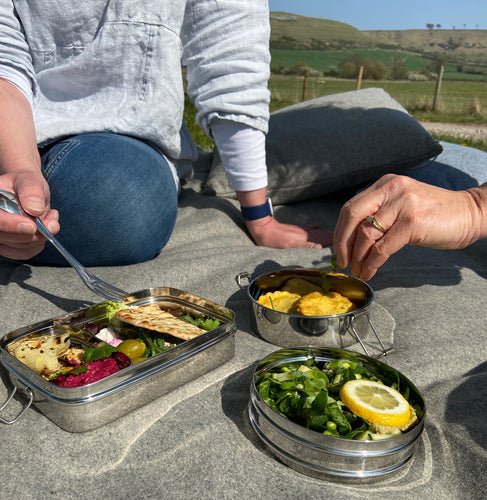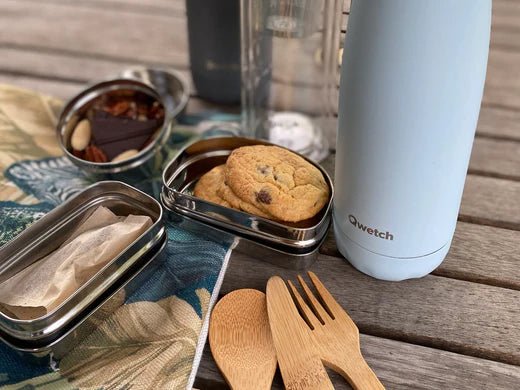How to eat locally and seasonably to reduce costs and environmental impacts
Growing enough vegetables to feed our families all year round is a dream not many of us can manage to achieve. In the UK we all rely on farming to provide us with the vast majority of our diet.
But there are ways we can minimise our impacts, as well as changing to a more plant based diet, and cutting down our food waste. For tips on reducing waste check out our Green Guide where you'll find over 20 tips aimed at saving money and food waste.
Eating seasonably and eating locally are two ways of reducing your environmental impact . But which is better for you, your pocket and the environment?

Firstly understanding what the terms mean is important!
Eating locally
Can mean eating food produced from the town or region in which you live, up to eating food produced in the country you live in. Pros are:
- Reduced food miles – Local means less transport, less refrigeration and lower emissions
- Supporting local economies, employment, and rural development – Eating local produce helps strengthen communities, particularly those in more remote and rural areas, leading to more self-sufficient and resilient food networks. The supply chain is shorter, farmers get a better return for their efforts, and less of your money is lost to the middle-men!
- Fresher, tastier, healthier produce – Less transport means fewer preservatives are needed to protect and extend the life of produce. Plus, fruit and vegetables lose their nutritional value over time, so the sooner they reach your plate the better. (Source https://adas.co.uk/)
Eating seasonably

Means restricting certain food to the time of the year when it is at its peak, either in terms of harvest or its flavour. This is usually when the product is cheapest and freshest on the market. Pros are:
- Minimal inputs – Products grown in season (for example, British strawberries during the summer months, and root vegetables in the autumn) require fewer inputs (such as energy, water and fertiliser).
- Varied diet throughout the year – By only growing what is in season, the available produce varies throughout the year and tends to complement the weather conditions – e.g. salads and berries during the summer months, with potatoes and root vegetables perfect for winter stews and casseroles during the colder months.
- Strengthens economies – There are often surpluses associated with seasonal produce. These can be sold to strengthen the economy, or preserved (by freezing, or producing jams and chutneys, etc.) for use out of season. (source https://adas.co.uk/)
In the UK it would be too restrictive to try and eat both locally and seasonably because even seasoned growers find it hard to fill the 'hungry gap' the period of time in late spring when winter hardy veggies have long gone and the new spring veggies have not reached maturity. It's true for farmers in the UK as well as home growers.
 Wonky veg food waste pioneers Oddbox explain how food can be wasted even in these lean times.
Wonky veg food waste pioneers Oddbox explain how food can be wasted even in these lean times.
So if we cant fill this gap can we still make a difference eating seasonally and locally?
Well yes! A huge difference!
How and what can we do?
- If you grow your own - share with friends, neighbours and on community sites such as Facebook pages. You will be surprised how many people will take your surplus and offer something completely different.
- Sign up to a local veg delivery. Have a look at the Soil Associations recommendations for your area.
- Sign up to Oddbox. You will be fighting food waste as well as buying locally sourced seasonal produce. All their perfectly edible fruit and veg is rescued from becoming waste either because it is too wonky or surplus from farms.
- Check what is in season - and see if you can incorporate new recipes into your diet with Hubbub's guide 'How to eat seasonally in the UK - a month by month guide'
- Learn some new skills like pickling, chutney making, jamming, salting and even canning fresh foods to prolong their season. It can be much cheaper to make your own and you can gift nice reused jars as presents - I do!
- Find your nearest farm shop or farmers market. If you can, buy produce loose. That way you will only buy what you need and as a bonus, have no packaging to dispose of. As long a s you remember to take your produce bags!






